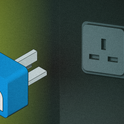Elections seem like simple things. Voters choose between a set of candidates, we count the votes and declare a winner.
And yet, there are numerous ways for an election to be rendered illegitimate. Authorities can prevent candidates from participating or voters from casting their ballots. Mis- and disinformation can create an environment in which voters are unable to make an informed choice. Intimidation of voters at polling places by soldiers, police or “observers” can suppress participation and influence the outcome. And there are more direct methods of election fraud, through stuffing ballot boxes with thousands of pre-filled ballots, intercepting ballots from districts likely to vote for a particular candidate or simply rigging the vote count itself.
On 29th July, Venezuela’s National Electoral Council (CNE) awarded the country’s presidential election to the incumbent Nicolás Maduro, but did not present any data that election observers could audit. The CNE claimed it was the victim of a terrorist attack that damaged the data needed to verify the result.
Auditing the Venezuelan elections should be relatively straightforward. Each voting machine produces a tally (acta) of the votes it has recorded. These public documents are then electronically transmitted to independent poll watchers, who collect them and transmit them to a central database. This allows for “parallel vote tabulation”, a way for observers to check the official count and detect fraud. While the CNE claimed Maduro had won 51 to 44 per cent of the vote, the parallel tabulation showed opposition candidate Edmundo González leading by 67 to 30 per cent, a number much closer to pre-election polling.
Had the CNE presented a set of actas and a tally to justify its decision that Maduro had won, there might have been doubt and uncertainty. Instead, international observers, such as the Carter Center, declared their judgements that the election was not free or fair, and a UN expert panel is likely to issue a concurring report. Most governments have rejected this obviously flawed election, and have said they will not recognise the Maduro presidency. Those who have accepted it are a rogues’ gallery of autocracies, including China, Russia, Iran and Cuba. And despite a violent crackdown on protests, Venezuelans have continued to take to the streets to challenge the stolen election. But what would happen if circumstances were reversed? What would happen if there was widespread rejection of an apparently legitimate election?
That situation may be on the horizon for the United States as the 2024 presidential election looks to be exceedingly close. If Kamala Harris wins, it seems likely that Donald Trump will not accept the results. In a debate with Harris, he insisted that he had won the 2020 election. In a post on his Truth Social network, he accused Democrats of “rampant Cheating and Skullduggery” and threatened “WHEN I WIN, those people that CHEATED will be prosecuted to the fullest extent of the Law, which will include long term prison sentences so that this Depravity of Justice does not happen again”.
Trump’s narrative that the 2024 election will be rigged centres on the idea that undocumented immigrants would illegally vote for Harris in huge numbers. This narrative combines two key Republican talking points: the demonisation of immigrants and the casting of doubt on the electoral process. But there is virtually no evidence of organised voting fraud in the US.
The conservative Heritage Foundation has been tracking confirmed reports of voter fraud and has found 1,546 cases over the past 20 years of US elections. The vast majority of these cases involved individuals confused about whether they were allowed to vote due to felony convictions, not organised fraud. In total, the numbers from Heritage suggest that fewer than 0.0001 per cent of votes cast in the US are fraudulent, numbers that are extremely unlikely to sway an election.
Despite the paucity of evidence, 28 American states have recently made it more difficult to vote in an effort to address this “problem”. In 2020, Trump insisted that mail-in ballots, widely used to enable social distancing during the coronavirus pandemic, would allow vote rigging. North Carolina, likely to be a key swing state in November, now requires mail-in ballots to be signed by a public notary or by two witnesses. Voters appearing in person to vote in North Carolina will be required to show photo ID. These changes to voting processes not only disenfranchise some voters but send an inaccurate message that voting fraud is a common occurrence that demands countermeasures.
To understand what’s going on in the US elections, it’s helpful to learn about an emerging field of scholarship: “agnotology”, the study of how doubt is consciously created and weaponised as a political strategy. Stanford professor Robert Proctor began using the term to explain how tobacco companies used sponsored research to cast doubt on whether cigarettes caused cancer, enabling them to continue selling their products. In their book Merchants of Doubt, historians Naomi Oreskes and Erik Conway documented how manufactured uncertainty about climate change paralysed governments from acting to limit CO2 levels. The weaponised doubt the Trump campaign appears to be marshalling may well be the next major case study in this new field.
People who deploy this tactic don’t seek to win arguments rationally: the research funded by tobacco execs wasn’t meant to persuade anyone that tobacco was safe. Instead, weaponised doubt is designed to paralyse decision-making, so it becomes harder for regulators or governments to take action. If we are busy debating to death how strong the correlation is between tobacco use and lung cancer, or whether climate change is entirely or only partially caused by humans, we may never take steps to address the problem. In the meantime, companies sell cigarettes, drill for oil and continue to profit.
Complexity is key to making weaponised doubt work. The goal is to overwhelm a casual observer, making situations look so complicated that non-experts despair of making sense of it. A constant string of accusations of voter fraud, past and future, not only makes for profitable programming for right-leaning TV networks such as Fox News, but creates the impression that numerous disputes are outstanding, and others await discovery. Curiously, this may mean that even information that suggests the US election is being manipulated to benefit Republicans‚ including a Department of Justice indictment that accuses Russia’s state media network of paying US-based conservative influencers, may contribute to a general feeling that US elections are too complicated and contested to trust.
Doubt paralyses, but confidence mobilises. The thousands of protesters who took to the streets to resist Maduro’s claims felt confident an election had been stolen based on the evidence of parallel vote tabulation. It is likely, if Harris wins, that the many million Americans who support Trump will nonetheless feel confident that the 2024 election was rigged. Polls suggest that two-thirds of Republican voters believe the 2020 election was stolen, despite ample evidence to the contrary. It’s critical that the rest of the world not be paralysed by doubt, and understands this conscious strategy to muddy the US election waters.
Elections are actually very hard to steal in the US. The decentralised system in which individual states and sometimes individual towns choose what voting systems they use makes it extremely difficult to attack the system as a whole, say by hacking a voting machine. Around 95 per cent of Americans will be voting in 2024 on paper ballots, which are easily recountable and verifiable. Because the US voting system is so strong, it’s easier to try to manipulate it through doubt than through any other means.
Ultimately, an election is only a success if its results are accepted and respected. Venezuelans were right to reject Maduro’s rigged election. But if Americans reject the 2024 election, it will be due to a deeply cynical campaign of weaponised doubt, which will give scholars something to study and would-be autocrats a plan of action to follow.













